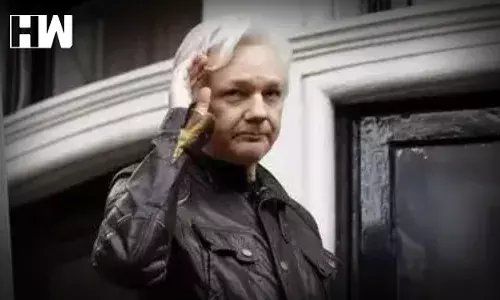London: On Wednesday, a UK judge issued a formal order extraditing Julian Assange, the founder of Wikileaks, to the United States to face charges related to the publishing of secret material linked to the Iraq and Afghanistan wars.
Priti Patel, the interior minister, now has the final say, albeit Assange has 14 days to appeal any decision to authorise the extradition.
A magistrate’s decision in central London on Wednesday takes the long-running legal dispute in the UK courts closer to a conclusion.
“No appeal to the High Court has yet been filed by him in respect of the other important issues he raised previously,” his lawyers Birnberg Peirce Solicitors said in a statement last month.
“That separate process of appeal has, of course, yet to be initiated.”
The ruling magistrate in central London brings the long-running legal saga in the UK courts closer to a conclusion on Wednesday. But Assange’s lawyers have vowed to make representations to Patel and potentially launch further appeals on other points in the case.
Assange was last month although, denied permission to appeal to the UK Supreme Court against moves to extradite him to the US, where he could face a lifetime in prison.
Washington wants him tried in connection with the release of 500,000 secret military files from the US-led wars in Iraq and Afghanistan.
The 50-year-old Australian looked to have earned a respite in January of last year, claiming that being held in solitary confinement at a maximum security US institution would put him at risk of suicide.
But the US government appealed, and at a two-day appeal hearing in October its lawyers pointed to diplomatic assurances that Assange would not be held in punishing isolation at a federal supermax prison, and would receive appropriate care.
Assange appealed that ruling and, in January, two judges allowed him to apply to the country’s highest court on “points of law of general public importance”.
But the court refused permission to appeal, saying the application “didn’t raise an arguable point of law”.
As an independent media platform, we do not take advertisements from governments and corporate houses. It is you, our readers, who have supported us on our journey to do honest and unbiased journalism. Please contribute, so that we can continue to do the same in future.

